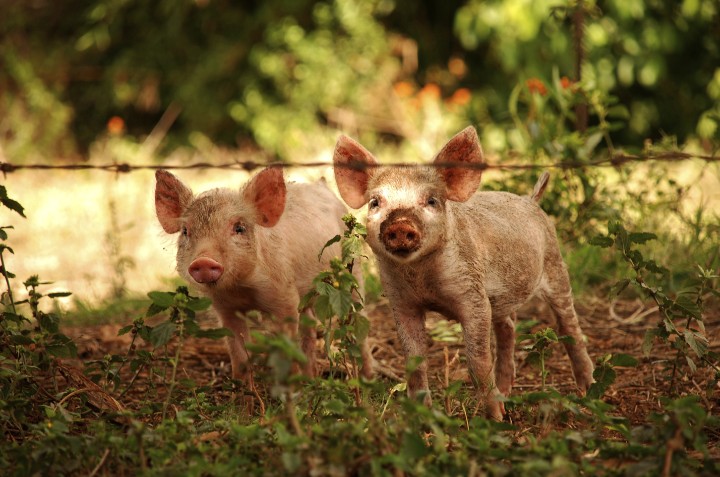Faith
Why Does Judaism Forbid Eating Pork? Health, Ethics, and Spiritual Reasons Explained
The Torah’s ban on pork teaches lessons in compassion, spiritual refinement, and the profound impact of food on our body, mind, and soul
- Daniel Blass
- |Updated

Ron asks: "Why did the Torah forbid eating pig and non-kosher animals, especially when scientists claim there’s nothing inherently harmful about consuming them?"
* * *
Hello Ron, and thank you for your question.
From a health perspective, many medical experts in fact discourage the consumption of pork. Numerous health professionals point out that pork’s high fat content contributes to the alarming rates of obesity, heart disease, and related illnesses in countries like the United States. Pig tissue contains a higher ratio of fat cells to muscle cells, which is why the animal appears bloated. Culturally, pigs are often used as symbols of gluttony and indulgence and they are known for their unclean habits; they often wallow in mud and eat all kinds of waste, especially in captivity, which associates them with filth and foul odor in human perception.
Historically, Jewish communities were spared many diseases that afflicted European societies due to their avoidance of pig farming and pork consumption. The Rambam (Maimonides) wrote: “The Torah despised the pig even more because of its filth and that it feeds on filth. You are already aware of how strict the Torah is regarding cleanliness, even in the desert camp, all the more so in settled cities” (Guide for the Perplexed, Part 3, Chapter 48).
That said, it’s clear that the Torah’s dietary laws are not based solely on medical or hygienic reasons.

There are numerous perspectives on this topic. Fascinating studies have found that kosher animals experience less pain during slaughter because their main nerve centers run through the neck. Pigs and other non-kosher animals however, have nerve pathways that run through the back of the neck, making it impossible for them not to feel pain during slaughter. In kosher slaughter, when done correctly, loss of consciousness occurs within two seconds, eliminating pain. Dr. Temple Grandin, one of the world’s leading experts on animal welfare during slaughter, stated in The Jerusalem Post (Dec 17, 2004): “I know that kosher slaughter, when performed correctly, is the most humane method of killing...”.
Moreover, the Torah’s compassion for animals isn't limited to the moment of slaughter but also considers the animal's level of intelligence and awareness. It appears that the Torah permits us to eat only the most docile and simple-minded creatures — those that feel the least amount of cognitive and emotional suffering. The pig, for example, is the fourth most intelligent animal in the world. In England, pigs are even raised as household pets. They are highly aware of their captivity and sense when they’re about to be killed, suffering emotionally in a way comparable to dogs or cats. Thus, just as the Torah forbids eating highly intelligent animals like dogs and monkeys, it similarly forbids pigs due to their cognitive awareness.
The Rambam explains in Guide for the Perplexed that many mitzvot concerning animals are designed to cultivate mercy within the Jewish people. Psychologically and spiritually, limiting ourselves to consuming only simple, non-intelligent animals helps reduce cruelty and cultivates a compassionate nature, unlike the practices prevalent among non-Jewish nations.

It’s not coincidental that the animals prohibited by the Torah, including dogs, cats, monkeys, and horses, are creatures with expressive eyes and intelligent gazes. In marine life, the Torah forbids dolphins, seals, and whales. Among birds, it prohibits parrots, eagles, and songbirds. In contrast, the animals permitted for consumption by the Torah are typically creatures with dull, passive, unfocused gazes, including sheep, chickens, cows, and goats, which are animals that naturally flock together and remain stationary for long periods without experiencing boredom. Even among fish, the Torah only permits primitive species with fins and scales, excluding marine mammals.
Beyond all these physical reasons, there is of course a deeper spiritual dimension. The sages teach that consuming non-kosher animals brings spiritual impurity into the soul, making it harder for a person to connect to Hashem and spiritual pursuits. There's a well-known saying: "A person becomes what they eat." Modern science confirms that food affects not just the body but also the mind. There is a profound connection between what we consume and the traits and tendencies it cultivates within us. It is therefore possible, that consuming animals like pigs infuses a person with more coarse, materialistic qualities that distance them from holiness.

